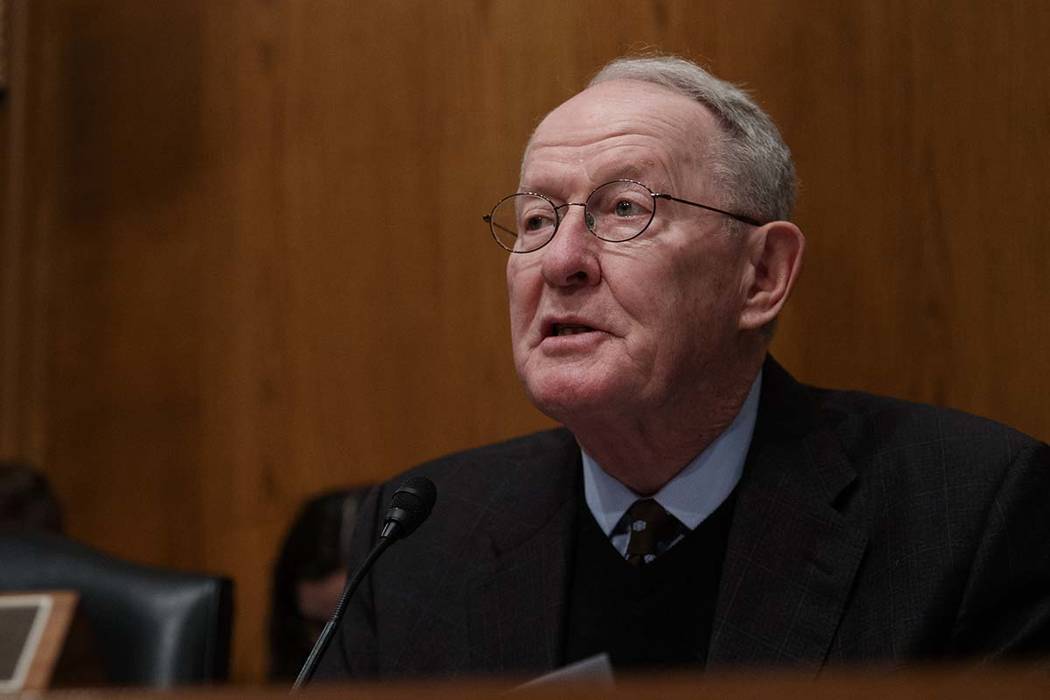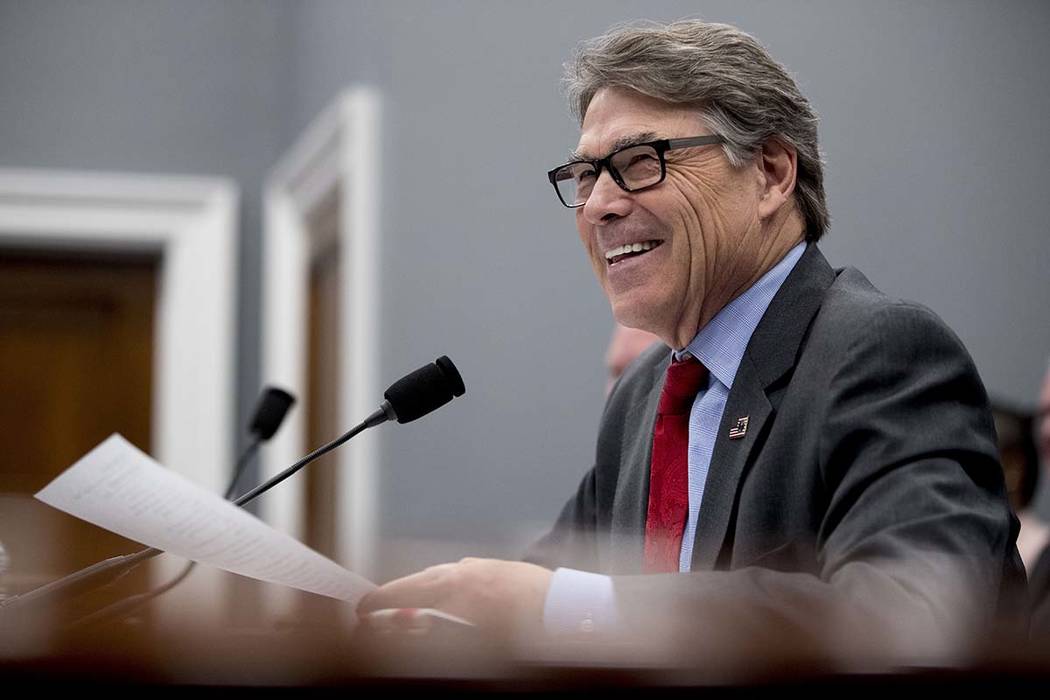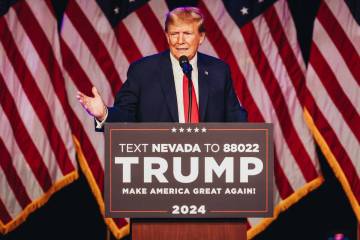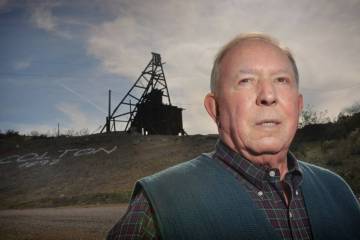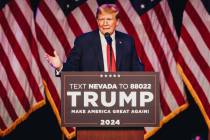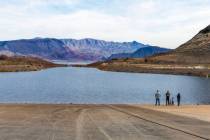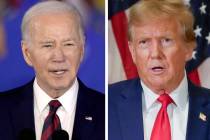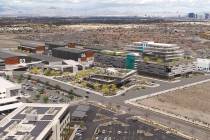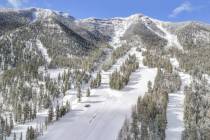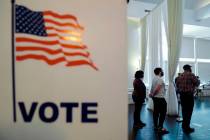Senate committee wants Yucca Mountain decision now
WASHINGTON — A Trump administration proposal to open Yucca Mountain and other interim sites for nuclear waste storage got a friendly reception Wednesday from key Senate lawmakers who vowed to break a 30-year impasse that has left spent radioactive fuel stockpiled across the country.
Republicans and Democrats on the Senate Appropriations subcommittee on energy were in agreement to push the development of interim storage sites until the impasse between the House and Senate over the development of Yucca Mountain can be resolved.
“We need, this year, to decide what to do about Yucca Mountain. We are either going to build it, or not build it,” said Sen. Lamar Alexander, R-Tenn., chairman of the subcommittee.
Until a decision is reached on Yucca Mountain, Alexander and the subcommittee’s ranking Democrat, Sen. Dianne Feinstein, D-Calif., agreed that interim storage sites in other states should be developed to quickly store waste produced by power plants.
Energy Secretary Rick Perry, who presented his $31.7 billion budget for fiscal year 2020, told the panel the department would need statutory language to store waste at other sites with private contractors.
Goverment fined $2 million per day
Perry told the panel that he is bound by current law to support the licensing process on Yucca Mountain.
The 1987 Nuclear Waste Policy Act designates Yucca Mountain as the nation’s sole permanent storage site. Perry said that until Congress changes the law, the stalemate would likely continue.
Perry said he supports interim storage to address the concerns about stockpiled waste in 39 sites, and have the federal government meet its obligation to take possession and dispose of the spent fuel.
The government is currently being fined $2 million per day for failing to meet its obligation, Perry said.
Although Perry, Alexander and others see Yucca Mountain as part of the solution, it has been met with stiff opposition in Nevada, where the governor, the state legislature and the congressional delegation have vowed to fight storing nuclear waste in a state that produces none.
“Each year, the federal government tries to make an attempt to force nuclear waste into our backyards, and every time Nevadans fight back,” said Sen. Catherine Cortez Masto, D-Nev.
Cortez Masto said the Yucca Mountain site is “seismically unsafe, scientifically unsound, a national security threat and a potential threat to the health of local communities.”
The 2020 fiscal year budget for the Department of Energy, which begins Oct. 1, includes $110 million to restart the licensing process for the Yucca Mountain building permit that was halted in 2011 when the Obama administration withdrew funding for hearings and legal challenges.
Energy experts before Congress in 2017 estimated the time frame to complete the licensing process for YuccaMountain to be between three to five years.
Interim storage pushed
The budget also includes $6.5 million to study ways to open interim storage facilities.
Private contractors have applied for construction permits to build interim facilities in New Mexico, and in Texas, where Perry once served as governor and encouraged nuclear waste storage.
Perry said the West Texas county of Andrews, where the interim site is located, welcomes a a storage facility.
The Nuclear Regulatory Commission is currently reviewing applications for the Texas and New Mexico sites.
But even if those sites were opened, the amount of nuclear waste that has been produced would require new locations to store the radioactive materials.
Alexander said that even opening Yucca Mountain, storing 70,000 metric tons of waste, would require the government to develop another permanent storage site elsewhere.
The chairwoman of the Senate Energy and Natural Resources Committee, Sen. Lisa Murkowski, R-Alaska, said authorizing legislation would be written to advance development of consent-based siting of interim and permanent locations.
She said addressing the stockpile of waste and breaking the stalemate was imperative to moving forward on developing new advanced nuclear reactors to replace older power generators and provide carbon free energy.
Alexander proposed that a group of senators and Perry meet within two weeks to discuss a way forward.
Alexander said the bipartisan agreement in the Senate to advance interim storage of nuclear waste has been stymied in the House, where the House approved legislation that passed overwhelmingly to develop Yucca Mountain before moving on interim storage capabilities.
Efforts by the Trump administration and the House to restart licensing on Yucca Mountain in the past two fiscal years died in the Senate.
Hundreds of challenges
Nevada is prepared to fight any attempt in this upcoming year to develop the Yucca Mountain project.
The state has 218 legal challenges to the Energy Department’s application for a construction license.
If licensing hearings resume, Nevada is expected to file 30 to 50 additional legal challenges, mostly concerning impact to groundwater, said Robert Halstead, executive director for the Nevada governor’s Agency for Nuclear Projects.
In the meantime, Cortez Masto has placed a “hold” on presidential nominees for Department of Energy vacancies over a secret shipment of a half ton of plutonium to the Nevada National Security Site adjacent to the Yucca Mountain site.
The plutonium was moved under federal court order from South Carolina, where the Energy Department is closing a plant to reprocess weapons-grade material into fuel.
Cortez Masto is demanding Perry produce a timeline on when the department will move the plutonium from Nevada to a laboratory in Los Alamos, New Mexico before she lifts her hold on energy nominees.
Contact Gary Martin at gmartin@reviewjournal.com or 202-662-7390. Follow @garymartindc on Twitter.



